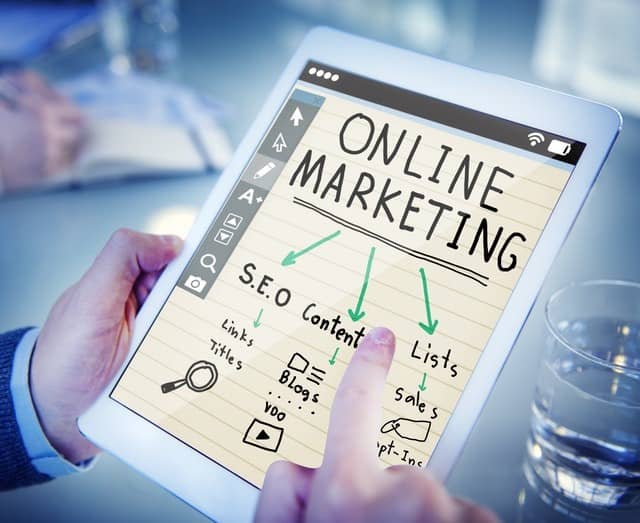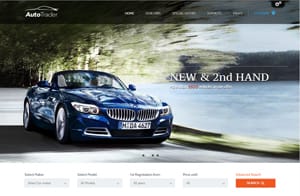Having a strong digital marketing strategy is critical to driving business growth. In today’s technology-charged and highly competitive business landscape, great digital marketing can set you apart from your competitors, build your brand and pay incredible dividends in terms of revenue and profit.
This article examines the essential elements of any digital marketing strategy to bring you to business success.
1. Have Clearly Defined Goals And Objectives
It may seem obvious, but this aspect is so important that it merits stating again: any digital marketing strategy should have clearly defined goals and objectives. Some businesses skip over these foundation elements in a rush to focus on execution.
In other cases, businesses may set out formal goals and objectives and then largely ignore them as they get caught up on digital marketing methods and technologies without properly considering if they best serve these objectives.
Before anything else, it is important to take a step back and consider what you want your digital marketing to achieve for your business. Make your objectives as specific as possible. Often (but not always), the best objectives contain figures and targets: for example, “grow Facebook to x number of followers” or “achieve x amount of revenue from direct website sales.”
2. Constantly Think About Your Audience
Your audience is another element that should influence how you develop your digital marketing strategy. The audience is everything: who your audience is should dictate your digital marketing methods and how you apply them.
In the early stages of developing your digital marketing strategy, define who your audience is. This could be your existing customer base, a target segment you would like to reach, or a combination of both. Then delve deeper into who this audience is, their needs, and how to reach them.
Many businesses find it helpful to develop ‘avatars’ of average audience members to consider what content they are looking for, what platforms they use, and what time of day they are online.
3. Always Come Back To Your Message

Messaging is incredibly important not just in terms of execution but also on a strategic level. You should have a clearly defined message which is set out in your communications strategy. This message will dictate how you approach digital marketing, your platforms and approaches, and your methods.
It is also critical to ensure consistency of messaging across all of your digital marketing channels. Ensure that your team is fully briefed on your message, and keep on top of all communications to ensure it aligns with your company’s message.
4. Have A Website Which Builds Relationships And Converts
Having a well-designed, well-written website that converts traffic into customers and sales is critical. Users are also developing higher expectations and standards when it comes to websites and accessing them on various devices, meaning sites need to look great not just on a computer screen but also on mobile.
Firstly, you want to make sure your website is interactive and engaging. Gone are the days when websites were static electronic brochures: you must engage your users with dynamic and interesting content. Furthermore, you need to give them opportunities to interact with you, such as the comments section on a blog.
This is the first part of converting traffic to sales. The second is having functionality that seamlessly locks in customers, whether a sales funnel or sign-up for your newsletter.
5. Take Advantage Of Digital Marketing Tools
To be competitive in today’s advanced digital marketing landscape, you need to be really on top of your game. Luckily, many great digital marketing tools and software are available today to help you refine, boost and streamline your processes.
Some examples include Ahrefs and Answer The Public for SEO, BuzzSumo, Buffer, and Co-Schedule for social media, and Google Analytics for site traffic analytics. As with digital marketing tools, the tools listed here are a mix of free, freemium, and subscription-only services.
Research these tools well to know which could benefit your business, determine your budget to know how many subscriptions you can afford, and develop your skills to use them to your maximum advantage.
6. Pursue Both Inbound And Outbound Sales
At HQ SEO, a successful online marketing strategy should consider both inbound and outbound sales. Before developing strategies to pursue both, it is important to understand the difference between inbound vs outbound sales.
Inbound sales are sales leads that come to you off the back of your website, client referrals, published content, or mentions of your business in the public arena. Outbound sales are those you have contacted and found yourself through cold calls or emails.
Although more time and resource-intensive, the great strength of outbound sales is that you have control over which clients you target. On the other hand, inbound sales have the advantage that clients already come to your company with some desire to do business with you. This usually means a greater chance of converting them into sales.
It is common for businesses to rely on inbound sales marketing, especially if they are successfully securing sales this way. However, by including outbound sales strategies combined with your inbound sales techniques, you can open up new revenue streams and drive greater business growth.
7. Get On The Content Marketing Bandwagon

More and more businesses are including content marketing as a major part of their digital marketing, from small businesses and startups to some of the world’s biggest brands. Moreover, businesses are finding it highly effective in building their brand, expanding their customer base, and driving sales.
According to the 2017 Benchmarks and Trends Report from Content Marketing Institute and MarketingProfs, over 60 percent of B2B marketers said they had seen a rise in the effectiveness of their content marketing strategies from the previous year. Moreover, 0 percent of marketers felt their content marketing was “not at all effective,” down from 4 percent the previous year.
Content marketing can take many forms. Businesses commonly use blogs, videos, social media, eBooks, email marketing, webinars, and in-person events. It is highly effective in driving sales, revenue, and business growth because it allows you to offer something of real value to your customer while building trust and loyalty over time.
8. Link Building
Link building, or generating authoritative links from reputable sites pointing to your site, should be a part of your online marketing strategy if it isn’t already.
Some benefits of link building include improved SEO for your site because the higher quality, relevant links pointing to your website, the higher your rank in Google, and more organic visitors, sales, and leads.
Having your site linked to a major industry site or online publication generates the great potential for high-quality referral traffic. Furthermore, you can use that site’s logo on your website or social media to promote your business as “featured in” these well-known sites or organizations. This represents a valuable trust signal for potential customers.
9. SEO
In digital marketing, there is a lot of emphasis on search engine optimization. We would argue that this focus is more than justified.
SEO remains one of the best ways to drive organic traffic, and inbound sales lead to your site. Three major elements of SEO should be included in your digital marketing strategy:
- Great, SEO-friendly content
- Technical SEO of your site
- Link building
10. Don’t Keep Your Strategies And Techniques In Silos
The great thing about digital marketing is the potential to cross-promote and cross-pollinate across its various elements. Don’t keep your various digital marketing efforts separate. If using one type of content, marketing, or advertising, always think about how to link it, promote it, or use it in other aspects of your digital marketing.
Consider, for example, the incredible synergy of inbound marketing. Once you successfully secure link placements on high-quality, authoritative sites, you can use this in your outbound marketing by promoting your business or blog as having been featured on these sites.
Leveraging these various elements to support other aspects of your digital marketing makes your overall strategy stronger and more effective.
SEO and digital marketing specialist, I bring expertise in driving online visibility and optimizing organic search rankings. Leveraging my skills in keyword research, on-page optimization, content marketing, link building, and AI tools, I have consistently delivered measurable results across diverse industries.






